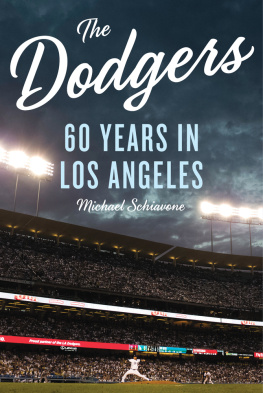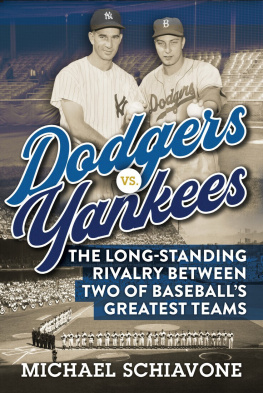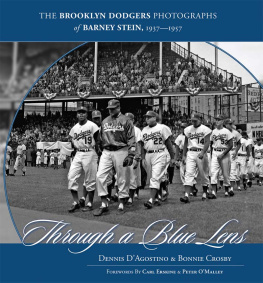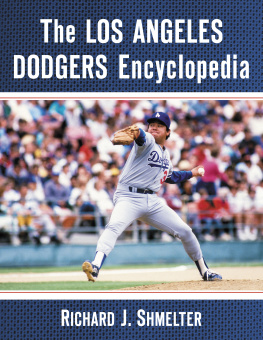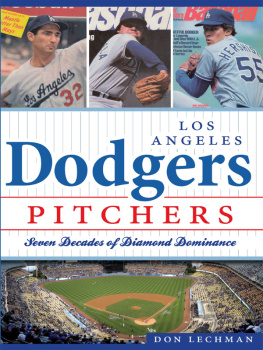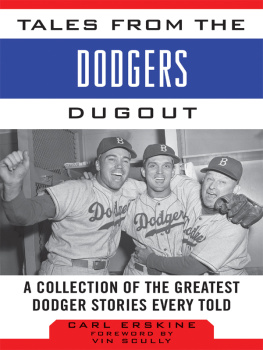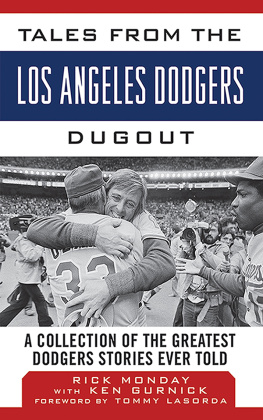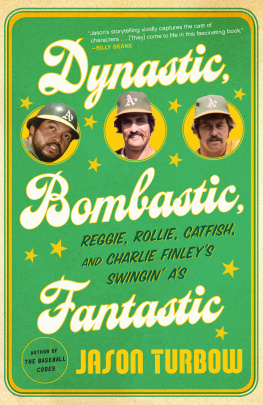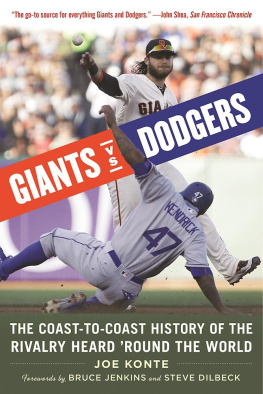Copyright 2018 by Michael Schiavone
All rights reserved. No part of this book may be reproduced in any manner without the express written consent of the publisher, except in the case of brief excerpts in critical reviews or articles. All inquiries should be addressed to Sports Publishing, 307 West 36th Street, 11th Floor, New York, NY 10018.
Sports Publishing books may be purchased in bulk at special discounts for sales promotion, corporate gifts, fund-raising, or educational purposes. Special editions can also be created to specifications. For details, contact the Special Sales Department, Sports Publishing, 307 West 36th Street, 11th Floor, New York, NY 10018 or .
Sports Publishing is a registered trademark of Skyhorse Publishing, Inc., a Delaware corporation.
Visit our website at www.sportspubbooks.com.
10 9 8 7 6 5 4 3 2 1
Library of Congress Cataloging-in-Publication Data is available on file.
Cover design by Tom Lau
Cover photo credit: AP Images
Print ISBN: 978-1-68358-193-2
Ebook ISBN: 978-1-68358-194-9
Printed in the United States of America
For Su Lan and Valentina
TABLE OF CONTENTS
PREFACE
I N 1988, I was a fourteen year old living in Australia. As was the norm, on Sunday afternoons I would watch Sports Sunday . At the start of the program they promised extended highlights of Game One of the World Series between the Los Angeles Dodgers and the Oakland Athletics. While I am almost certain that I had once watched a baseball game, or at the very least viewed highlights of a game previously, almost thirty years later I cannot recall ever seeing one pitch prior to that day. I was a Los Angeles Lakers fan, so, naturally, I began supporting the Dodgers. As was the formula, Sports Sunday would show highlights of different sports throughout the show. One would see ten minutes of one sport before the show switched to another, and then another, before going back to the original sport. On this day I remember feeling impatient; I just wanted to watch highlights from the World Series. What is now folklore, in the bottom of the ninth trailing 43 facing the As feared closer Dennis Eckersley, an injured Kirk Gibson blasted a two-run home run to win it for the Dodgers. People remember their first kiss, their wedding day, the day their children were born. I remember all of those and, if I close my eyes, can still see the home run and Gibson pumping his arm while circling the bases. I also can hear Vin Scullys call of the home run: High fly ball into right field, she is gone! In a year that has been so improbable, the impossible has happened.
The emotion, the drama, and Scullys call made me a baseball fanit made me a Dodgers fan. Another television network showed the rest of the series on delay. I begged my dad to record the games. After school I would rush home and watch the World Series. Following the Dodgers World Seriesclinching victory in Game Five, I jumped up and down with excitement. The Los Angeles Dodgers became, and still are, my favorite sporting team. I am privileged and thankful that almost 30 years later I am able to write the history of the Los Angeles Dodgers to mark the 60th year since the team relocated from Brooklyn.
THE BROOKLYN DODGERS
T HE HISTORY OF the Dodgers can be traced back to the formation of the Brooklyn Grays in 1883. The team originally played in the Inter-State Association of Professional Baseball Clubs before joining the American Association the following year. The team (now known as the Bridegrooms) won the American Association championship in 1889 before losing to the New York Giants in an early version of the World Series. The World Series that we know today, a match-up between the National League and American League champions, did not begin until 1903. In 1890, the team left the American Association and joined the National League. Even though they had the less-than-flattering nickname of Bridegrooms, they managed to win the National League pennant, compiling a 8643 recordwell ahead of the Chicago Colts (6 games) and the Philadelphia Phillies (9 games). Legend has it the team chose the Bridegrooms moniker because seven members of the team got married in 1888. The Bridegrooms went on to tie with the American Association champion Louisville Colonels in the World Series. Both teams won three games, and there was one tie. The weather continually worsened during the Series, which led to the managers deciding that Game Seven would be the last game, which Louisville won to tie the Series. While a deciding game was meant to be played the following year, it never occurred due to the respective leagues being at loggerheads due to the formation of the Players League.
During the 1890s and into the new century, the Brooklyn squad also had other informal monikers such as Wards Wonders (based on John Montgomery Ward, who was the skipper from 1891 to 1892), Foutzs Fillies (based on Dave Foutz, who was the skipper from 1893 to 1896), and Hanlons Superbas (based on Ned Hanlon, who was the skipper from 1899 to 1905). Another moniker was attached to the Brooklyn side in the 1890s: the Trolley Dodgers.
The term Trolley Dodgers first appeared in print in May 1895 and was picked up by other publications throughout the season. In the 1800s, when the city had a number of trolleys, they were initially pulled by horses. Brooklyn residents did not bother to look when they crossed the street because they knew that horses would not run them over. However, when horse trolleys were replaced by electric ones, many Brooklyn residents still did not bother to look when they crossed the street. As a result, they often had to jump out of the way to prevent being hit. Of course, not all Brooklyn residents were lucky; eight people were killed in 1892, fifty-one in 1893, and in thirty-four in 1894. In a wonderful article, The Grim Reality of the Trolley Dodgers, Peter Jensen Brown elaborates:
The name trolley dodgers would not and could not have been used to describe the baseball team or anyone else from Brooklyn until 1892. The frequent appearance of the verb to dodge, in association with trolleys in Brooklyn between 1892 and 1894, and the lack of evidence of trolley dodger during the same period, suggests that the phrase had not achieved a significant level of use, if any, before 1895. The description of trolley dodger as the new name of the Brooklyn team shortly after opening day in 1895, and the repeated reporting of the name as new throughout 1895 and into 1896, suggests that the name was likely first applied to the team in 1895. The name seems to have been extended to people from Brooklyn only later, and then not in a pejorative sense.
The moniker was frequently used by a wide variety of newspapers in 1896. Eventually, Trolley was dropped from the name, and the local baseball team simply was known as the Brooklyn Dodgers. However, it was still an informal nickname. From 1899 to 1910, the team was more formally known as the Brooklyn Superbas. In 1911 and 1912, the team was known as the Brooklyn Dodgers, but the following year it was once again known as the Superbas. From 1914 until 1931 it went by the Brooklyn Robins. In 1932, the team was formally known once again as the Brooklyn Dodgers. And it was not until 1933 it the nickname became permanent, with the Dodgers name being put on the teams jerseys.
There was another informal nickname bestowed upon the Dodgers in the mid-1930s. The Dodgers of this era were more known for their less-than-stellar approach to the game. It would be wrong to claim that the players did not care, but they were seemingly lacking in the basic fundamentals of the game. The Dodgers continually committed basic errors, and defeat was more common than victory. Legend has it that sports cartoonist Willard Mullin heard a cab driver ask, So how did those bums do today? and drew a cartoon based on circus clown Emmett Kelly with the heading Dem Bums. Rather than take offense at the carton, Brooklyn fans loved it, and the Dodgers were dubbed Dem Bums by the Brooklyn faithful. No one berated and abused the Dodgers more than the Brooklyn faithful, but at the same time no one loved their baseball team more than they did. The Dodgers were a part of Brooklyn, and the city was a part of them.

